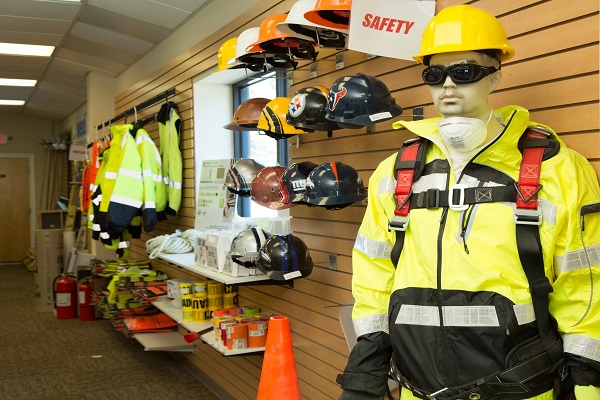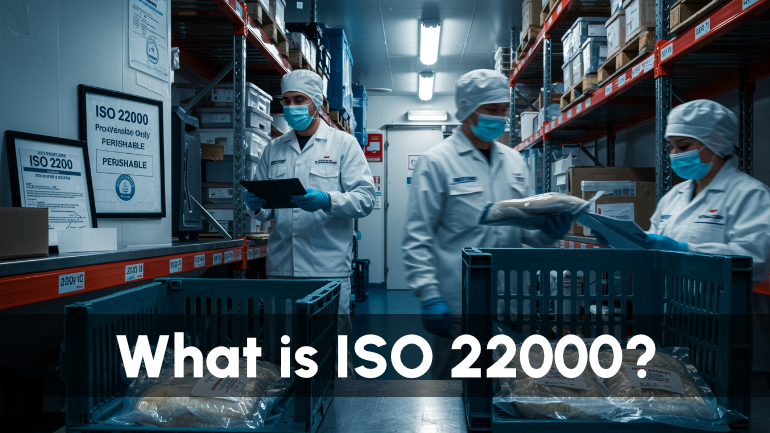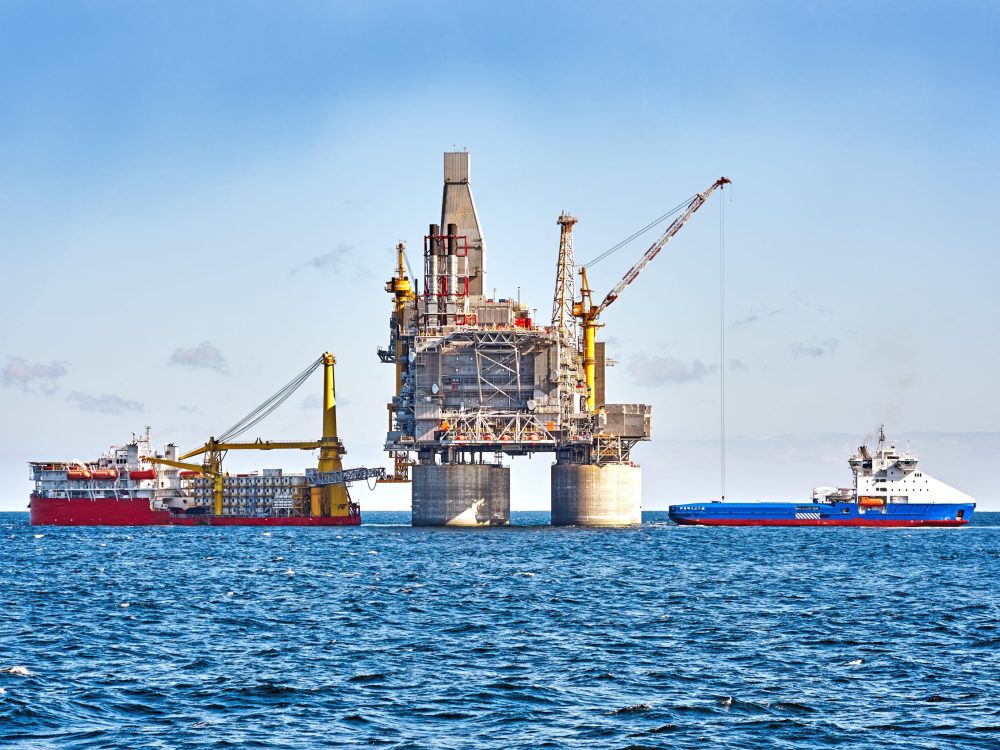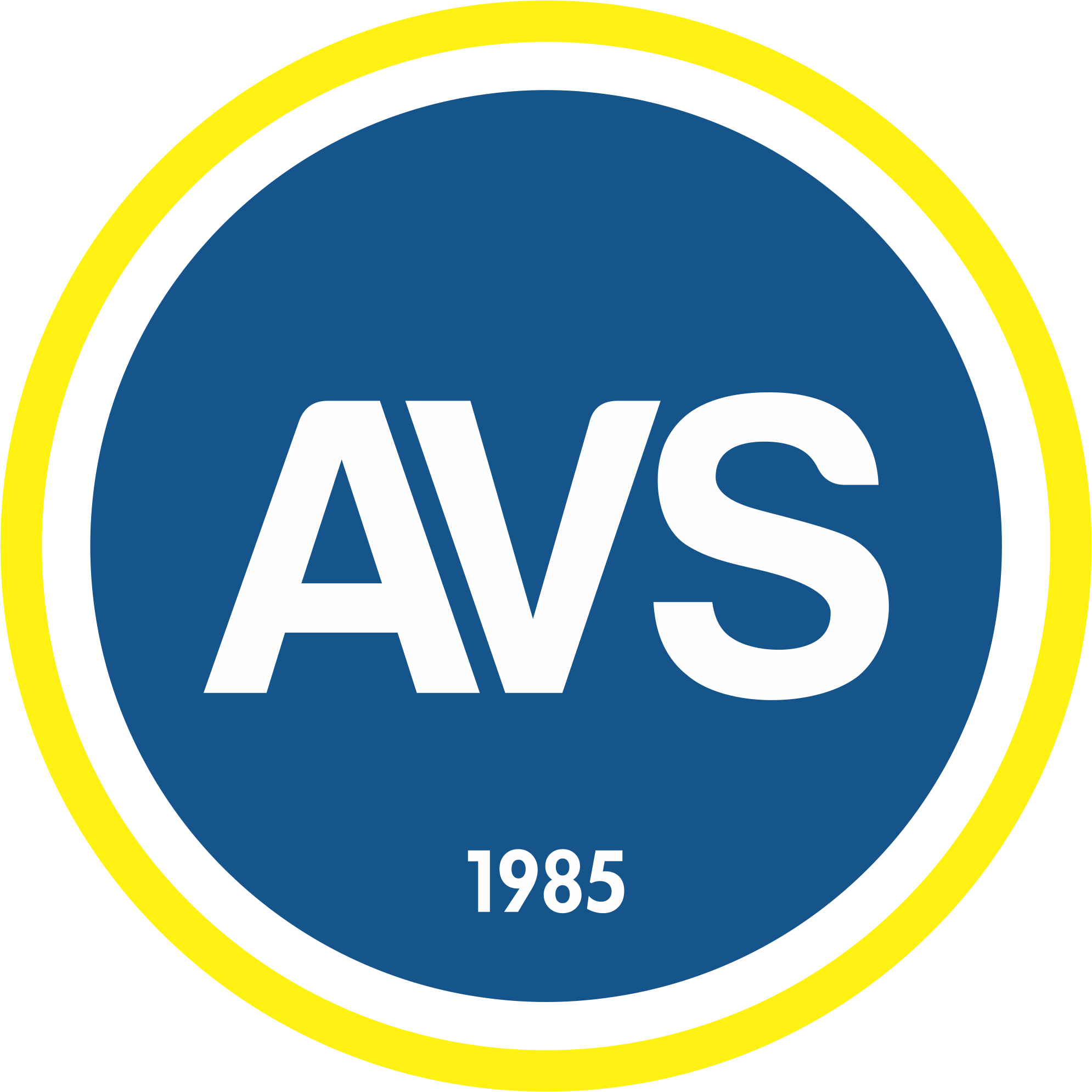

About Us
AVS has led maritime supply, catering, and logistics for 39 years, serving seafarers globally. Our reach spans 1,500+ ports in 126 countries, committed to excellence, innovation, and sustainability. We aim to surpass client expectations, making their challenges our mission.
Partner with AVS, where fast, efficient and reliable maritime solutions is our priority.
About UsContact Info
- Soganlik Yeni Mah, Pamukkale Sk. No:2, 34880, Kartal, Istanbul, Turkiye
- +90 216 591 0849
- info@avsglobalsupply.com
What is ISO 22000? Food Safety Management for Ship Supply & Catering
- Home
- Blog
- What is ISO 22000? Food Safety Management for Ship Supply & Catering

Kategori Yok
- Date: 17 Jun 2025 21:00
- Author: AVS Editor Staff
What is ISO 22000? Food Safety Management for Ship Supply & Catering

ISO 22000 is an international standard developed by the International Organization for Standardization that defines the requirements for a food safety management system (FSMS). It applies to all organizations in the food chain, including producers, transporters, storage providers, and service vendors — including those operating in maritime environments.
It incorporates principles from:
- HACCP (Hazard Analysis and Critical Control Points)
- ISO 9001 (Quality Management Systems)
- Codex Alimentarius guidelines
It focuses on managing food safety hazards through preventative controls, process validation, and structured communication across the supply chain.
Why ISO 22000 Matters in Ship Supply
- Vessels are isolated environments — a single contaminated batch can impact the entire crew
- Onboard storage conditions often fluctuate with voyage duration, temperature, and humidity
- Regulatory pressure from port health authorities, charterers, and vetting bodies continues to increase
- Maritime supply operations involve multi-modal, multi-port logistics, which heightens contamination risk
Implementing ISO 22000 helps suppliers prove due diligence, reduce spoilage, and build long-term trust with technical managers, ship owners, and regulatory bodies.
Key Components of ISO 22000
H3: Core Elements of the Standard
- Context of the organization
- Leadership and commitment
- Hazard analysis and operational controls
- Monitoring and measurement
- Corrective actions and continual improvement
- Internal audits and management reviews
H3: Operational Flow in Maritime Supply
- Risk identification (e.g. bacterial risk in frozen meat)
- Establishing critical control points (e.g. frozen transport between -18°C and -20°C)
- Verifying vendor compliance
- Documenting batch traceability from warehouse to vessel
- Training delivery crew and onboard handlers
- Recording non-conformities and preventive actions
Benefits of ISO 22000 in Maritime Logistics
- ✅ Reduces the risk of foodborne illness onboard
- ✅ Strengthens vetting performance (RightShip, TMSA, MLC)
- ✅ Supports compliance with ISM Code and Port State Control
- ✅ Enhances credibility with ship managers and catering firms
- ✅ Enables participation in international tenders and naval contracts
Implementation Challenges
- 🔸 Requires structured documentation and skilled FSMS personnel
- 🔸 Small suppliers may lack dedicated food safety teams
- 🔸 Training must extend beyond logistics to onboard handlers
- 🔸 Must adapt to multi-port delivery routes and variable last-mile conditions
Comparison Table: ISO 22000 vs HACCP
| Feature | ISO 22000 | HACCP |
|---|---|---|
| Scope | Full FSMS (organization-wide) | Hazard control at process level |
| Certification | Auditable international standard | Non-certifiable (unless integrated) |
| Documentation | Comprehensive, system-focused | Process and product specific |
| Integration | Compatible with ISO 9001, ISO 45001 | Standalone |
| Applicability to Ship Supply | Strategic (governs all food handling) | Tactical (focus on hazard control) |
Best Practices for Ship Suppliers and Operators
- Align all provisions workflows — storage, handling, labeling — with ISO 22000 clauses
- Train onboard crew in receiving, checking, and documenting food safety
- Ensure traceability by maintaining delivery records linked to batch IDs
- Conduct regular audits and supplier reviews
- Embed food safety KPIs into your broader quality management structure
Frequently Asked Questions About ISO 22000
What is ISO 22000?
ISO 22000 is an international standard that outlines the requirements for a Food Safety Management System (FSMS). It is designed to help organizations in the food chain identify and control food safety hazards through risk-based thinking and preventative controls.
Who needs ISO 22000 certification?
Any organization involved in the food supply chain — including producers, processors, transporters, distributors, ship suppliers, and offshore caterers — can benefit from ISO 22000 certification.
How is ISO 22000 different from HACCP?
- HACCP is a system for identifying and controlling food safety hazards.
- ISO 22000 includes HACCP principles but integrates them into a comprehensive, auditable management system, compatible with other ISO standards (e.g., ISO 9001).
Is ISO 22000 mandatory?
Not legally — but many maritime clients, classification societies, and port authorities require or strongly prefer ISO 22000-certified partners, especially when supplying provisions for passenger vessels or offshore assets.
What are the key components of ISO 22000?
- Hazard identification and control measures
- Clear roles and responsibilities
- Communication and documentation protocols
- Monitoring, verification, and continuous improvement
- Integration with quality, safety, and procurement systems
Why is ISO 22000 important for ship supply?
Because food safety risks at sea are amplified by:
- Long voyage durations
- Limited access to replacement or emergency supplies
- Strict regulatory scrutiny at international ports
- Isolated onboard environments where one contaminated batch affects the entire crew
How long is ISO 22000 certification valid?
Certification is typically valid for 3 years, with annual surveillance audits. Full re-certification is required after the initial cycle.
Can ISO 22000 integrate with other standards?
Yes. It is designed for high compatibility with ISO 9001 (Quality), ISO 14001 (Environment), and ISO 45001 (Health & Safety). This is especially useful for large fleet operators and multi-service marine logistics providers.
What’s required to get certified?
- Conduct a gap analysis
- Develop or update your food safety management documentation
- Train your team (warehouse, delivery crew, handlers)
- Pass an external audit by an accredited certification body

Published by
AVS Editor Staff
Bilinmiyor
Popular Posts


